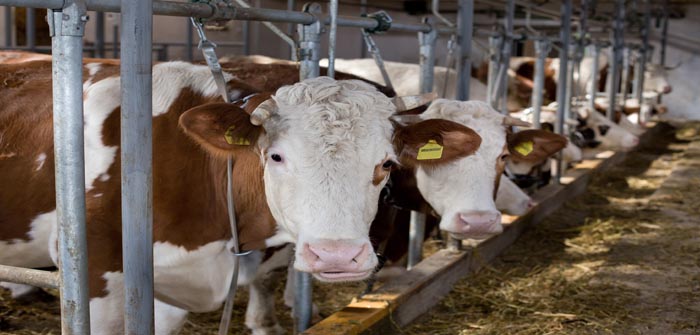A new early warning system to alert farmers to the risk of disease among their young cattle stock is being developed at The University of Nottingham.
The innovation, dubbed Y-Ware, could save the UK farming industry millions of pounds, while improving health and welfare of animals and reducing the antimicrobial use to treat these diseases.
The £1.1 million project is a partnership with farming digitalisation specialists PrognostiX and BT, and is supported by a grant from Innovate UK, the UK Government-funded innovation agency.
Dr Jasmeet Kaler, associate professor of epidemiology and farm animal health currently leading ruminant population research in the University’s School of Veterinary Medicine and Science, is the academic lead on the project.
She said: “Improving youngstock health on cattle farms is a key priority for cattle industry and also been identified by industry task force RUMA as one of key targets for antibiotic reduction on cattle farms especially beef.
“Use of innovative and precision health technologies offer a great solution in this direction. Whilst there has been an increase in availability of various technologies for livestock over the past decade, there are none that target youngstock health and overall very few precision livestock technologies that have been validated in the field and combine various sources of data with multiple transmission protocols to develop algorithms for livestock health and welfare.”
Dr Kaler said the group does impactful cutting-edge research into the health and welfare of UK cattle and sheep, with a special focus on endemic disease in populations.
She added: “In this project, we are leading data analytics working alongside our partners. We will utilise our domain knowledge with regard to our understanding of disease biology and epidemiology together with various machine learning approaches on the data gathered via sensors. Our overall aim will be to develop an innovative technology that combines different formats of data, uses application of Internet of Things and advanced analytics for early detection of disease in young stock and thus allow targeted use of antibiotics.”


